· 14 min read
Thoughts On Mobile Gaming – An Interview With PocketGamer

Edward Price
Community Manager at GameAnalytics
Ric Cowley has been working at SteelMedia for nearly 3 years, and has recently been promoted to the role of Editor at PocketGamer.co.uk. We spoke to him about the biggest trends in mobile games, what he enjoys as a consumer, how to get your games noticed by the press, and the overwhelming prevalence of games like Clash Royale.
Ric, tell us, how did you get into mobile games?
I initially started out at PocketGamer.co.uk as an intern for three months, then I was hired as a freelancer for PocketGamer.biz, and then when a job came up after 2 months of doing that, I was hired as a full-time staff writer, and then have worked my way up from there to the role of Deputy Editor of PocketGamer.biz. Now I’m the Editor of PocketGamer.co.uk!
What would you say is one of the most appealing things about mobile games?
The main thing is that it’s accessible to everyone – everyone has a smartphone. There’s – I don’t know the exact figures – about one or two billion smartphones in the world, so everyone has one, and everyone can play them, and if you make a game to the right specs then you can hit a huge audience without having to worry about what hardware it’s going to be on.
It’s also good for playing in very small bursts. It’s something you can do in three minutes; you don’t have to load anything up, you don’t have to update anything – well, sometimes – you can just play something in three minutes and feel that fun factor as much as anything else. It’s that same sort of experience but a much shorter timespan.
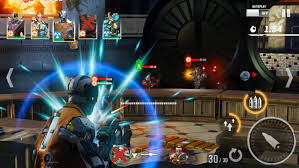
As a journalist, what trends have you noticed in mobile games recently?
One of the most interesting ones is the influence on Western games using Asian Mechanics. So, in Asia, there’s a lot of monetisation around Gacha. We call them Loot Boxes in the West, mainly, but they call it Gacha. We’re taking that and making it, I guess, fairer, in a way? There’s been games like Dragon’s Watch by The Secret Police which was heavily influenced by Japan, and that is very generous with monetisation to start with, it will tell you the odds of what you are going to get when you roll the dice on the Loot Box. I was also playing Hero Hunters by Hothead Games – it does the same thing, and is very Japanese in the way it does its monetisation, so that’s very interesting to see.
I think we’re also seeing a move away from Mid-Core – there was a lot of boom about mid-core in 2016 and 2017, with people trying to capture that kind of ground between making a hardcore game and making a casual game. I think some developers are now leaning towards either core or casual. Actually, there’s still a fair few mid-core games currently, so maybe scrap that one! [Laughs]
Esports has definitely become more of a thing in mobile games, there are plenty of developers trying to get in on that while it’s still young. There’s not been too many good or too many big games, there’s been Vainglory and Clash Royale, and I really hope that Honor of Kings which is known as Arena of Valor in the West is really going to become the next big Esport. It’s very good, and it’s going to be on Nintendo Switch as well, which is going to boost its profile a bit. It has 200 million downloads, and it made $1.9 billion last year, from one year of being an Esport, which is pretty darn impressive.
I think definitely Esports, tournaments, and competitive gaming are definitely becoming more of a thing in mobile games.
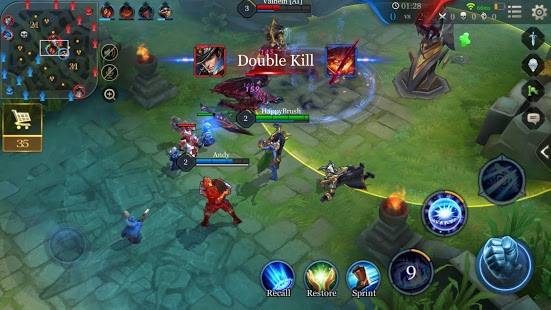
To circle back on what you said about Gacha systems, it’s something that’s been controversial for console games, but do you think it’s a good mechanic for mobile games? If not, is there a way to make it more fair, or should it be changed entirely?
I think the problem when it comes to console games is that it’s added value on top of the base value that you’re paying for. For mobile games, it’s fine as most titles are free-to-play, and so people have the option to play the game for free, and they can pay money, if they want to. The only way you can make that fair is to make sure that the value you are adding by selling an IAP is enough that it justifies the sale. I don’t think buying energy does.
I think energy mechanics need to go away, buying energy is a bad way to make money because people will stop playing your game, and then they’re not encouraged to spend more money. You want people to stop playing at some point, because you don’t want them playing for 5 hours, burning out and not playing it again. You want to encourage them to stop and come back, but selling energy is not a good method of doing it.
[bctt tweet=”‘Buying energy is a bad way to make money because people will stop playing your game, and then they’re not encouraged to spend more money.’ – @RicCowley discusses microtransactions in mobile gaming. ” username=”GameAnalytics”]
There’s still some discussion about Pay-To-Win, where you can buy better items and make yourself better. I think if we as an industry are pushing towards Esports in mobile games, then that needs to stop, as it will ruin the competitive scene if some people are going to be inherently better because they spend more money. Although, Clash Royale is still making money and it still does that kind of thing – I guess if you’re a developer you have to decide whether you want to be a competitive game or an Esports game. If you want to be an Esports game, you have to make sure it’s fair, but if you want to be a competitive multiplayer, then buying more powerful items for real money still seems to be a way forward.

You spend a lot of time playing games as a journalist, but when you play for fun, what makes you keep playing?
I’m a really big fan of Idle Games. I know that’s a weird thing to be a fan of because they play themselves and you just watch them play! [Laughs] One thing I really like about those games though is that you get a lot of rewards from watching video ads. I think rewarded video ads are something more developers should be using, and they should be promoting that as a way forward.
I know it doesn’t make them as much money as an IAP, but I know in the past I was playing Egg Inc. – which is a great game – I watched 20 rewarded video ads in one day. It also had a great monetisation mechanic where you built up premium currency in a piggy bank, and for £3 you could smash the bank and get that currency, and I ended up doing that because I built up so much from watching the video ads that it made more sense for me to buy that than any of the other packs that were available for sale. It also made me want to keep playing because it gave me a great reward.
[bctt tweet=”‘If you’re a developer you have to decide whether you want to be a competitive game or an Esports game’ – @TheRicass discussing ‘pay-to-win’ transactions in mobile games.” username=”GameAnalytics”]
I like video ads because I like to get more things, faster, but I don’t want to put the effort or the money in! So, if I see a rewarded video ad, I think “I’m going to keep playing this for a while”.
For fun, I like playing games where you just increment constantly and the numbers just keep going up and up and up and up, but I also think you have to have a decent economy behind those. You really need to think about that, because some games do that and fail miserably, you’ll get to points where you can’t make any solid progression when you’ve only been playing for about ten minutes, and it’s not because it wants you to buy anything, it’s because the actual economy behind it is broken.
Crazy Taxi Gazillionaire is a showcase of that – don’t be like Crazy Taxi Gazillionaire! [Laughs] – they ruined their economy by making it so easy to pour money into the early level stuff!
I like games where you start small, and then in ten minutes you’ve got huge numbers on everything, and then you can start over and do it again and again and again!
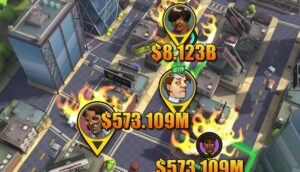
You also mentioned earlier about Esports, which is something that has quite a social aspect. Do you think there’s a lot more potential in terms of the social aspect of mobile gaming than there currently is?
I think social has kind of been pushed to its limit at this point. Most games at this point have guilds and clans. Even celebrity games like Britney Spears: American Dream had clans and chat and stuff like that, and we’ve kind of done all there is that you can do about social. But, also, if you don’t include those mechanics, even though it’s a casual game…
I was playing Toon Blast by Peak Games, and that’s a super casual “tap buttons and things explode” game, and I was part of a clan, and that actually encouraged me to keep playing. I’d log in and help people in my clan, you could message each other, and I didn’t actually know any of them, but it was still that mechanic in a super casual game, and from what I know, that game’s done really well.
So, I think social has been taken as far as it can go, but if you’re not doing social in your game, it might fail, unless you have a very good reason why it doesn’t work in your game.

What experiences are you looking forward to in the future for mobile games?
I’m really interested in seeing what AR is going to do for mobile. There are a lot of people trying different ideas, but plenty aren’t launching until 2019. There’s Reality Clash, which is a first-person shooter but it’s AR, but I’m really excited to see how that works – if it does work. We still need to get past the point where enough people have a phone capable of using AR, and enough people who are actually going to play an experience that adds to the game, rather than just projecting images onto things, but AR is definitely going to be interesting for mobile games.
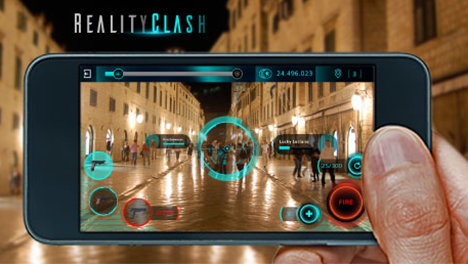
As a Journalist, you get a lot of developers trying to get your attention and to play their games, but they may not know the best ways. Do you have any tips that you can impart to make their pitches towards you and other journalists more effective?
First thing you need to do is sell your game within the first sentence of your email. Don’t mess about, just get straight in with “this is what my game is”. If you really need to, say “it’s like X crossed with Y, but it’s Z”, but you need a one line hook that will make someone say “oh, this is interesting”.
Then show them an image or a link to a video, and then give them the chance to play the game. After all that, then start talking about what your game is and digging into everything else. No-one cares about who you are, they just want to play your game; we see hundreds of games a week, and there’s only so much time you can really dedicate to reading emails, so get the important points across first. Nobody wants to read your life story straight away!
[bctt tweet=”‘Social has been taken as far as it can go, but if you’re not doing social in your game, it might fail’ – we discuss social systems in mobile games with @TheRicass” username=”GameAnalytics”]
The other important thing I would find is to go to events where you know journalists will be there, like our own PocketGamer Connects, that we hold three times a year in London, San Francisco, and Helsinski! At those, we have ‘journalist bars’ where you can book in an appointment with a journalist, show them your game, and get their contact details. You can bump into them as they’re wandering around, we have parties where you can meet them, and we have The Big Indie Pitch, where you can actually sit down with a developer and other industry experts and get info from them.
Once you’ve got their contact details and they know who you are, they’re more likely to respond to your emails, because making that human connection helps. At the end of the day, journalists are humans; they’re not just people sat behind screens. They don’t hate you, and they don’t hate your game, they just don’t have the time to really sit down and play it. You’ve got to get their attention, or you’ve got to make a connection with them in person, that’s the absolute best way.
As soon as you know them in real life and send them an email, they’ll be like “oh yeah, it’s that dev, I saw their game, I thought it was interesting, maybe I’ll get to know a bit more”. That really helps us with our work because we know we can sort the wheat from the chaff straight off, and not have to spend much time sorting through emails, and it also means we’re more likely to check it out, mostly because we don’t want to upset people once we’ve met them! [Laughs] It’s really rude otherwise!
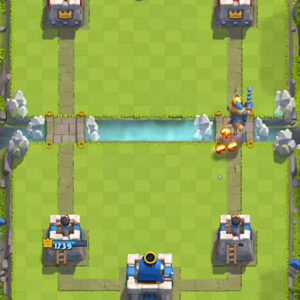
So, final question. Is there anything else you’d like to say to mobile developers who may be reading?
Stop trying to make Clash Royale! It’s been done! [Laughs] There’s been so many games just like Clash Royale; if you’re going to make Clash Royale, make a game that is Clash Royale, but something vastly different. Hothead Games have done this brilliantly with one of their games, which is like that, but nothing like it at all.
Also, if you are going to make a game that is a bit like Clash Royale, just say it’s a bit like Clash Royale! We don’t need to beat around the bush! [Laughs]
It’s the hot game of the minute, it made $1.2 billion last year, we know why you’re making that game, and know that’s the idea you’re going for. You don’t need to lie – it’s fine! We understand, and it helps us with our jobs for you to tell us the truth!
Thank you very much for taking the time to talk with us!
Ric Cowley can be found at PocketGamer.co.uk (@PocketGamer), and can be contacted on Twitter via @TheRicass. For more information on PG Connects, please visit http://www.pgconnects.com.
Disclosure: Edward Price and Ric Cowley previously worked together for several years at GamingLives.com.